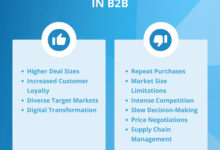B2B Companies: 7 Powerful Strategies to Dominate the Market
In today’s fast-paced digital economy, b2b companies are redefining how businesses connect, collaborate, and grow. From innovative SaaS platforms to industrial supply chains, these organizations power the backbone of global commerce with strategic precision and long-term vision.
Understanding the Core of B2B Companies

B2B companies—short for business-to-business enterprises—operate by selling products or services to other businesses rather than individual consumers. This model spans across industries such as manufacturing, technology, logistics, and professional services. Unlike B2C (business-to-consumer) models that focus on emotional appeal and quick transactions, b2b companies emphasize logic, value, and long-term relationships.
Defining B2B: How It Differs from B2C
The fundamental difference between b2b companies and their B2C counterparts lies in the nature of their customers and decision-making processes. While B2C transactions often involve a single buyer making impulsive or emotionally driven decisions, B2B purchases are typically made by committees or stakeholders who evaluate cost, ROI, scalability, and integration capabilities.
- B2B decisions involve longer sales cycles.
- Purchasing is based on logic, efficiency, and strategic alignment.
- Customer relationships are long-term and relationship-driven.
“In B2B, you’re not just selling a product—you’re selling a solution to a business problem.” — HubSpot, B2B Marketing Guide
Key Industries Dominated by B2B Companies
B2B operations are widespread across multiple sectors. Some of the most prominent include:
- Technology & SaaS: Companies like Salesforce, ZoomInfo, and Slack provide tools that empower other businesses to operate efficiently.
- Manufacturing & Industrial Supplies: Firms such as Siemens and Caterpillar supply machinery and components essential for production lines.
- Logistics & Supply Chain: DHL, FedEx, and Flexport help businesses manage global distribution networks.
- Professional Services: Consulting firms like McKinsey, Deloitte, and PwC offer expertise in finance, strategy, and operations.
These industries thrive because they enable other businesses to scale, innovate, and remain competitive.
The Economic Impact of B2B Companies
B2B commerce accounts for over 80% of all global trade, according to the McKinsey Global Institute. The sheer volume of transactions between businesses dwarfs consumer spending when measured in total economic value. This dominance is due to the interconnected nature of modern supply chains, where one company’s output becomes another’s input.
For example, a semiconductor manufacturer sells chips to smartphone producers, who then sell devices to consumers. The initial B2B transaction enables the final B2C sale, highlighting how foundational b2b companies are to the entire economic ecosystem.
How B2B Companies Build Long-Term Customer Relationships
One of the defining characteristics of successful b2b companies is their ability to cultivate enduring partnerships. Unlike B2C brands that may rely on one-time purchases, B2B firms depend on repeat business, contract renewals, and upselling opportunities.
The Role of Trust and Credibility
Trust is the cornerstone of any B2B relationship. Because clients are investing significant time, money, and resources into a vendor’s solution, they demand proof of reliability, security, and performance. B2B companies build trust through:
- Transparent pricing and contract terms.
- Case studies and client testimonials.
- Industry certifications and compliance standards (e.g., ISO, SOC 2).
- Consistent customer support and service level agreements (SLAs).
For instance, AWS (Amazon Web Services) has built immense credibility by offering robust data security frameworks and uptime guarantees, making it a preferred choice for enterprise clients.
Account-Based Marketing (ABM) Strategies
ABM is a targeted approach used by b2b companies to personalize marketing efforts toward specific high-value accounts. Instead of casting a wide net, ABM focuses on engaging decision-makers within a single organization with tailored content and outreach.
- Identifying key accounts based on revenue potential and strategic fit.
- Creating personalized campaigns using data-driven insights.
- Aligning sales and marketing teams to deliver a unified message.
According to Forrester Research, companies using ABM report 200% higher win rates compared to traditional lead generation methods.
Customer Success Management in B2B
Customer success has become a critical function within b2b companies, especially in subscription-based models like SaaS. A customer success manager (CSM) ensures that clients achieve their desired outcomes using the product or service.
- Onboarding new clients with structured training programs.
- Monitoring usage patterns and identifying at-risk accounts.
- Providing strategic advice and facilitating product adoption.
Companies like HubSpot and Adobe have invested heavily in customer success teams to reduce churn and increase lifetime value (LTV).
Digital Transformation in B2B Companies
The digital revolution has transformed how b2b companies operate, market, and sell. From AI-powered analytics to cloud-based collaboration tools, technology is reshaping the B2B landscape at an unprecedented pace.
Adoption of AI and Automation
Artificial intelligence is no longer a futuristic concept—it’s a practical tool used by leading b2b companies to enhance efficiency and decision-making. Applications include:
- Lead scoring and predictive analytics to identify high-potential prospects.
- Chatbots for instant customer support and qualification.
- Automated workflows for invoice processing, order fulfillment, and CRM updates.
For example, Gong.io uses AI to analyze sales calls and provide real-time feedback to reps, improving conversion rates across B2B sales teams.
E-commerce Platforms for B2B Transactions
Traditionally, B2B sales relied on phone calls, emails, and in-person meetings. Today, more b2b companies are adopting e-commerce platforms to streamline purchasing. Platforms like Shopify B2B, Magento, and BigCommerce allow businesses to:
- Offer bulk pricing and tiered discounts.
- Enable self-service ordering with custom catalogs.
- Integrate with ERP and inventory management systems.
A study by Gartner predicts that by 2025, 80% of B2B purchases will be made through digital channels.
Data-Driven Decision Making
B2B companies are leveraging big data to gain deeper insights into customer behavior, market trends, and operational performance. Key tools include:
- Customer Relationship Management (CRM) systems like Salesforce and HubSpot.
- Business Intelligence (BI) platforms such as Tableau and Power BI.
- Marketing automation tools like Marketo and Pardot.
By analyzing customer interactions, purchase history, and engagement metrics, b2b companies can refine their strategies and deliver hyper-personalized experiences.
Marketing Strategies That Work for B2B Companies
Effective marketing in the B2B space requires a blend of content, credibility, and consistency. Unlike B2C campaigns that rely on viral trends, b2b companies focus on building authority and nurturing leads over time.
Content Marketing and Thought Leadership
High-quality content is the backbone of B2B marketing. Whitepapers, case studies, webinars, and blog posts help establish a company as an industry expert. For example:
- A cybersecurity firm publishes a detailed report on emerging threats.
- A financial software provider hosts a webinar on tax compliance for CFOs.
- An HR tech company releases a benchmarking study on employee retention.
According to the Content Marketing Institute, 91% of B2B marketers use content marketing to reach customers, with 60% stating it’s their most effective strategy.
Search Engine Optimization (SEO) for B2B
SEO is crucial for b2b companies looking to attract qualified leads through organic search. Key tactics include:
- Targeting long-tail keywords like “best CRM for mid-sized manufacturing firms.”
- Optimizing landing pages with clear CTAs and value propositions.
- Building backlinks from industry publications and partner websites.
Because B2B buyers often begin their journey with a Google search, having a strong SEO presence ensures visibility at the top of the funnel.
Social Media and LinkedIn Marketing
While platforms like Instagram and TikTok dominate B2C marketing, LinkedIn is the go-to channel for b2b companies. It allows professionals to network, share insights, and engage with decision-makers.
- Posting industry news and company updates.
- Running targeted Sponsored Content campaigns.
- Engaging in group discussions and comment sections.
Companies like IBM and Cisco use LinkedIn to showcase innovation, thought leadership, and career opportunities, strengthening their employer brand in the process.
Sales Funnel Optimization for B2B Companies
The B2B sales funnel is inherently more complex than its B2C counterpart. It involves multiple touchpoints, stakeholders, and evaluation stages. Optimizing this funnel is essential for increasing conversion rates and reducing time-to-close.
Lead Generation and Qualification
B2B lead generation starts with identifying prospects who have a genuine need for a product or service. Common methods include:
- Content gated behind forms (e.g., downloading a whitepaper).
- Webinar registrations and event sign-ups.
- Paid advertising targeting specific job titles or industries.
Once leads are captured, qualification frameworks like BANT (Budget, Authority, Need, Timing) help sales teams prioritize high-intent prospects.
Nurturing Leads Through Email Campaigns
Not all leads are ready to buy immediately. B2B companies use email nurturing sequences to educate and engage prospects over time. These campaigns typically include:
- Follow-up emails after content downloads.
- Product demos and trial invitations.
- Customer success stories and ROI calculators.
Automation tools like Mailchimp and ActiveCampaign allow b2b companies to segment audiences and deliver personalized messages at scale.
Closing Deals with Consultative Selling
Consultative selling is a relationship-based approach where sales reps act as advisors rather than pushy vendors. They ask probing questions to understand the client’s pain points and tailor solutions accordingly.
- Focusing on business outcomes rather than product features.
- Presenting customized proposals with clear ROI projections.
- Addressing objections with data and case studies.
This method builds trust and increases the likelihood of closing high-value deals.
Challenges Facing Modern B2B Companies
Despite their critical role in the economy, b2b companies face numerous challenges that can impact growth, profitability, and sustainability.
Intense Market Competition
As barriers to entry decrease—especially in digital services—the number of b2b companies offering similar solutions continues to rise. Standing out requires differentiation through innovation, superior service, or niche specialization.
- Competing on price alone leads to margin erosion.
- Differentiation through unique features or exceptional UX is key.
- Building a strong brand identity helps in crowded markets.
Supply Chain Disruptions
Global events such as pandemics, geopolitical tensions, and natural disasters have exposed vulnerabilities in supply chains. B2B manufacturers and distributors must now build resilience through:
- Diversifying suppliers across regions.
- Investing in inventory forecasting tools.
- Adopting blockchain for transparency and traceability.
The 2021 Suez Canal blockage, for example, disrupted shipments worth billions, underscoring the fragility of global logistics networks.
Cybersecurity and Data Privacy Risks
With increasing digitalization comes greater exposure to cyber threats. B2B companies handle sensitive data—from financial records to intellectual property—making them prime targets for attacks.
- Ransomware attacks can halt operations and damage reputations.
- Compliance with GDPR, CCPA, and other regulations is mandatory.
- Regular security audits and employee training are essential.
According to IBM’s Cost of a Data Breach Report 2023, the average cost of a data breach in the B2B sector exceeds $4.5 million.
Future Trends Shaping B2B Companies
The future of b2b companies is being shaped by technological innovation, shifting buyer expectations, and evolving business models. Staying ahead requires foresight, agility, and a willingness to adapt.
Rise of Subscription-Based Models
More b2b companies are moving away from one-time sales to recurring revenue models. Whether it’s software (SaaS), equipment leasing, or managed services, subscriptions offer predictable income and deeper customer engagement.
- Customers prefer lower upfront costs and flexible contracts.
- Vendors benefit from higher customer lifetime value.
- Churn management becomes a critical KPI.
Adobe’s transition from boxed software to Creative Cloud is a prime example of this shift.
Hyper-Personalization Through AI
Buyers now expect personalized experiences similar to those in B2C. B2B companies are using AI to deliver tailored content, pricing, and recommendations based on user behavior and company profile.
- Dynamically adjusting website content for different visitor types.
- Offering customized product bundles based on past purchases.
- Using predictive analytics to anticipate future needs.
This level of personalization enhances relevance and accelerates decision-making.
Sustainability and Ethical Sourcing
Corporate responsibility is no longer optional. B2B buyers increasingly favor vendors that demonstrate environmental stewardship and ethical practices.
- Using recyclable packaging and reducing carbon emissions.
- Partnering with suppliers who uphold labor rights.
- Reporting ESG (Environmental, Social, Governance) metrics transparently.
A McKinsey survey found that 70% of B2B decision-makers consider sustainability when choosing suppliers.
What are b2b companies?
B2B companies, or business-to-business companies, are organizations that sell products or services to other businesses rather than individual consumers. Examples include software providers, industrial equipment manufacturers, and consulting firms.
How do b2b companies generate leads?
B2B companies generate leads through content marketing, SEO, social media (especially LinkedIn), webinars, trade shows, and account-based marketing strategies that target specific high-value accounts.
What is the difference between B2B and B2C marketing?
B2B marketing focuses on logic, ROI, and long sales cycles involving multiple stakeholders, while B2C marketing emphasizes emotion, convenience, and quick decision-making by individual consumers.
Why is customer success important for b2b companies?
Customer success ensures clients achieve their desired outcomes, leading to higher retention, reduced churn, and increased upsell opportunities—critical for subscription-based and service-oriented b2b companies.
What role does AI play in b2b companies?
AI enhances b2b companies by automating repetitive tasks, analyzing customer data for insights, improving lead scoring, powering chatbots, and enabling hyper-personalized marketing and sales experiences.
As we’ve explored, b2b companies are the engine of global commerce, driving innovation, efficiency, and growth across industries. From mastering complex sales funnels to embracing digital transformation and sustainability, these organizations must continuously evolve to stay competitive. By focusing on customer relationships, leveraging data, and adopting forward-thinking strategies, b2b companies can not only survive but thrive in an ever-changing marketplace. The future belongs to those who combine technological agility with human-centric values—delivering real value, one business partnership at a time.
Further Reading:




